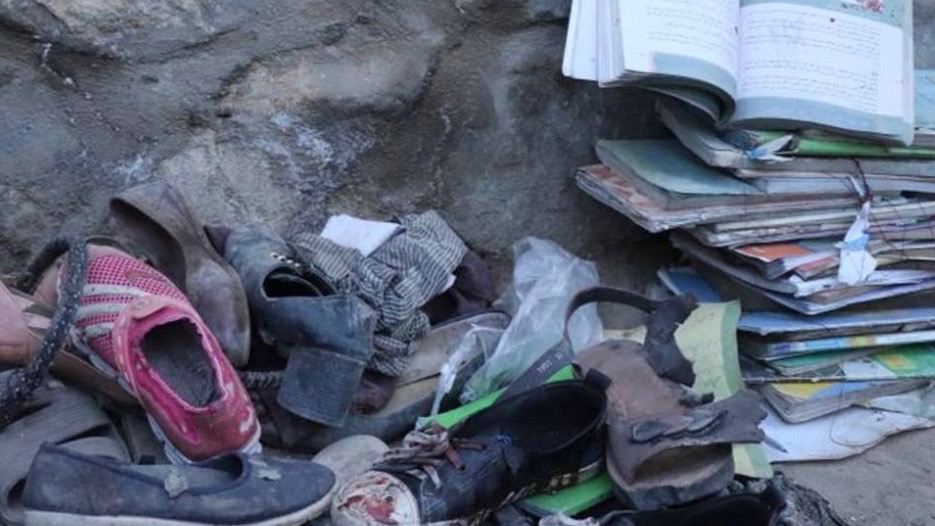Rights organizations, including the Afghanistan Independent Human Rights Commission, United Nations Security Council and Amnesty International, have condemned recent bombings in Afghanistan. The groups said that the deadly attacks should serve as a wake-up call to the world.
On May 8, an explosion in west Kabul’s Dasht-e-Barchi area killed over 60 people, the majority of them girls who were studying at the Sayed ul-Shuhada school in the national capital. The blast targeted the minority Shia Hazara community. At least 150 people were also injured in the attack.
The Taliban has accused Daesh or the Islamic State in Afghanistan of carrying out the bomb blast. However, no militant outfit has claimed responsibility so far. The Dasht-e-Barchi area of Kabul district has also seen similar attacks in the past. Last May, at least 24 people were killed when a group of gunmen stormed a hospital premises and started indiscriminate fire.
On May 9, another attack was witnessed in Zabul province’s Shahr-e-Safa district in southern Afghanistan. At least 11 civilians were killed and 30 others were wounded by a roadside bomb allegedly planted by the Taliban that hit a passenger bus. Two more civilians were killed in Parwan province by a roadside bomb near Pul-e-Muttak area on May 10.
“These unspeakable crimes brutally highlight the failure of authorities to protect civilians, particularly girls and minority groups. People are being slaughtered on a weekly basis and the bloodshed shows no sign of letting up,” Amnesty International said.
“Now is not the time for the international community to turn its back on Afghanistan. Targeting civilians, especially children and schools, is a war crime and violation of international humanitarian law. All parties to the peace negotiations must focus their utmost efforts on protecting civilians, upholding human rights for all, and ending impunity for these crimes,” the rights group added.
While condemning the attack, the UN “Security Council underlined the need to hold perpetrators, organizers, financiers and sponsors of these reprehensible acts of terrorism accountable and bring them to justice.”
Civilians in Afghanistan are simultaneously facing the brunt of a protracted political conflict, climate change, and the ongoing COVID-19 crisis. At least 920 civilians lost their lives in the conflict last year. The United Nation Assistance Mission in Afghanistan reported that 573 civilians were killed in the first three months of 2021.
More than four million Afghans have become Internally Displaced Persons (IDP) in nearly four decades of violence, with the US invasion in 2001 exacerbating the crisis. As many as 327,000 people were displaced in 2020, according to the United Nations Office Coordination of Humanitarian Affairs. In 2021, the number of people in need of humanitarian aid nearly doubled compared to early 2020.
Targeted killings
On May 6, former ToloNews anchor and media official at the ministry of finance, Nemat Rawan, was killed in a targeted attack by unidentified gunmen in the city of Kandahar. 28-year-old Rawan became the fifth journalist killed under mysterious circumstances this year.
Nemat had resigned from anchoring just three weeks ago following numerous threats to his life. He then joined the ministry of finance as a media official.
”Our former colleague, Nemat Rawan… was gunned down this morning in the most cowardly manner imaginable. May his soul rest in peace. Far far too young to be leaving this world,” Saad Mohseni, director of Moby group tweeted.
The killing took place in the PD14 area of Kandahar on the morning of May 6. As per eyewitness accounts, one attacker stopped Rawan’s car and another came on a motorbike and shot him with a pistol.
Between May 2020 and April 2021, at least 10 journalists have lost their lives in Afghanistan, as per the South Asia Press Freedom report. According to the International Federation of Journalists (IFJ) and its affiliate Afghan Independent Journalists’ Association (AIJA), “The political tensions in Afghanistan and the imminent withdrawal of US troops in September 2021 do not bode well for media workers who remain vulnerable to attack for not toeing the line of government or the Taliban. Critical efforts are urgently needed to protect freedom of expression and independent journalism in Afghanistan.”
The Taliban has denied their involvement in Rawan’s killing. Meanwhile, many are questioning the dubious role played by Afghan intelligence agencies. Intelligence chief Ahmad Zia Siraj recently said that some journalists who were working in favor of the Taliban would not be tolerated by the agency.
Since the US invasion in 2001, over 50 journalists and scores of right defenders have been killed in Afghanistan, making the country the fifth most dangerous place for journalists, as per the Committee to Protect Journalists’ Impunity Index.





